Theme songs: On first loves and the first album we fell in love with
MANILA, Philippines - Put it on the endangered species list. The album format started out as a mere compilation of singles. In the Motown era, that meant your favorite singles from the last few months — singles you probably bought anyway — in one album plus filler. In the late 1970s, by the time Fleetwood Mac released their landmark “Rumours” album — still one of the best-selling albums of all time — the format was a bona fide art form. Artists were using the album to tell a whole story. In the ‘80s came the era of the blockbuster album — mega-sellers like “Purple Rain” and “Thriller” paving the way.
In 2014, we find ourselves at a crossroads. With album sales shrinking year by year, and streaming methods like Spotify and YouTube leaving the idea of the album as something to be purchased obsolete, it feels like no one’s really listening to albums anymore.
Two weeks ago, though, the surprisingly strong numbers Taylor Swift’s “1989” opened with provided a beacon of hope. At Young STAR, we figured it would be a good time to talk about the album as a format, as a body of work to be immersed in and appreciated. A lot of our readers grew up in a time of singles-based illegal downloads and streaming. It might just be the best time to talk about the merits of falling in love with a complete musical statement.
Eraserheads’ “Ultraelectromagneticpop”
By Jason Tan, award-winning music video director
For me, there are two first albums that I really fell in love with. The first one is something my mom bought for me, and is just too embarrassing to mention. The second one is an album I bought with my own money, which meant putting aside a portion of my allowance for a grueling three months! It was “Ultraelectromagneticpop” by the Eraserheads.
Bought as a cassette tape in Butuan City, I think I was in first year high school then. I fell in love with this album so much, and I’m still in love with it today.
The songs came to me, and my friends, at the right time. We were at that age when we were starting to have major crushes on girls, and were tinkering around a lot with the guitar. The album just fit into our lives. I remember my dad getting annoyed because I was always popping the tape into our pickup’s player: “What is that noise?!”
Twenty years later, I got to meet the band personally. I even got to work on several projects with one of them. Looking back, never in my wildest dreams had I thought that a diehard fan like me would ever meet the people behind the soundtrack of my growing-up years, let alone work with them. 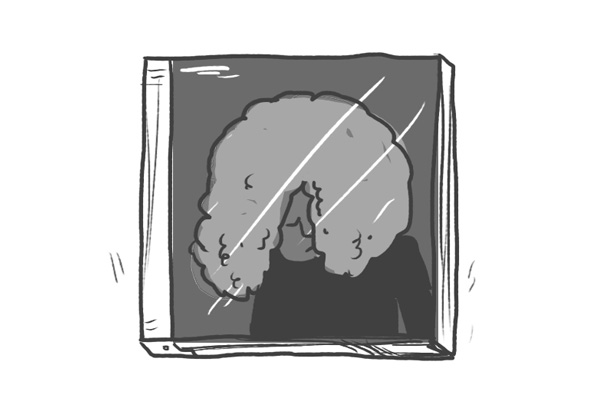
Janet Jackson’s “The Velvet Rope”
By Tammy David, photographer
Maybe it’s because I like to root for anybody who is the youngest in the family. Maybe it’s because I’ll root for anybody who has weight issues like me. But while I like MJ, the Jackson 5, or heck, even the nephew trio 3T, who I really love from the Jackson clan is Janet. And among her albums, “The Velvet Rope” tops my list and is the first album I appreciated as a whole.
I was 13 years old when I bought a cassette tape of her greatest hits album “Design of a Decade” and it’s one of my favorite compilations of all time. So just imagine when the critically acclaimed and much-hyped album “The Velvet Rope” was released in 1998. I was 15 at that time with raging hormones and imaginary issues, and was eager to relate to Janet’s most personal album.
When I listened to that album, there were no 20 tabs on my web browser or a need to update my status with #nowplaying. The only distraction at that time was reading the CD inlay (Trivia: Photographer Ellen Von Unwerth shot the cover photo) so I had one of those rare pleasurable sound-tripping experiences of listening to a good album for the first time and internalizing the lyrics as if I had a love life to weep over.
It’s hard to choose a favorite track since everybody who goes to weddings loves Together Again and Everytime is my ultimate emote song. There are too many standout songs for me and I guess that’s what makes it good. But I did put some tracks on repeat like I Get Lonely. Listening to that song, I didn’t feel empowered (I get that from Donna Summer) or sexy and playful (I get it from post-Spinning Around Kylie). It was just a unique R&B song that didn’t have bolero sexy time lyrics. Today, I still listen to “The Velvet Rope” whenever I sound trip or to go with my trash novels. I like how it doesn’t feel nostalgic or old school but still fresh —which proves to me that this album really is timeless.
‘N Sync’s “No Strings Attached”
By Kai Honasan, singer-songwriter/The Voice PH
contestant
When you think “life-changing albums”, anything made by any boy band or girl band in the 90’s-early 2000s isn’t really a credible answer. That time was the peak of “bubblegum pop” and as a kid, I ate it all up. The first album I fell in love with was “No Strings Attached” by ‘N Sync which came out in 2000, back when I was 11 years old (and we had just “survived” the millennium.) I remember the hype after the video for Bye, Bye, Bye came out, every one knew those dance moves and everyone watched the making of the video on MTV where the boys were put in a giant rotating blue box. The album ended up selling a million in a week. By no means is it due to the fact that the music was groundbreaking. It was still just a classic boy band album: a few upbeat singles, a couple of heartfelt power ballads, a bonus a cappella track to show that they were “true musicians.” That album helped me figure out the difference between a rock star and a pop star and I decided I wanted to grow to be the one that had to do synchronized choreography.
American Football’s self-titled album
By Shinji Manlangit of The Strangeness
On the day of my birthday, American Football announced a reissue of their sole self-titled album to celebrate its 15 years of existence. That was the moment when I truly felt old. I’ve spent the last decade clinging on to this record, going back and forth to it as it navigated me through young adulthood and the problems that it entailed. The entire album is just a little over 40 minutes, but in its brevity is a wallop of emotions that really cuts deep.
When you’re 15, you feel everything. This album intensified it further. Emo is such an antiquated term, one that I turned into a joke as I neared my mid-20s, but it’s the only word that captures the essence of the album. Written as the band was transitioning out of college, the album explores ennui, romance, regret, and heartache in such a familiar way that it becomes a part of you. Listen to the opening track, Never Meant and hear it explode in your face. The odd time signatures and the jazz-influenced drumming eases you into this sea of emotions, and the songwriting feels honest and contemplative.
The songs navigate perfectly through painful breakups (Never Meant, The Summer Ends), fear of growing up (Honestly?) and discontent (Stay Home). Math rock was known to be fast and snappy, but American Football successfully transcends the genre by going quiet and slow. For a sad album about failed romances, American Football taught me a lot about love and growing up. I learned how it’s okay to get hurt because it allows you to heal. That it’s okay to be scared because it pushes you to be bolder. That feeling defeated only pushes you to stand up and face whatever.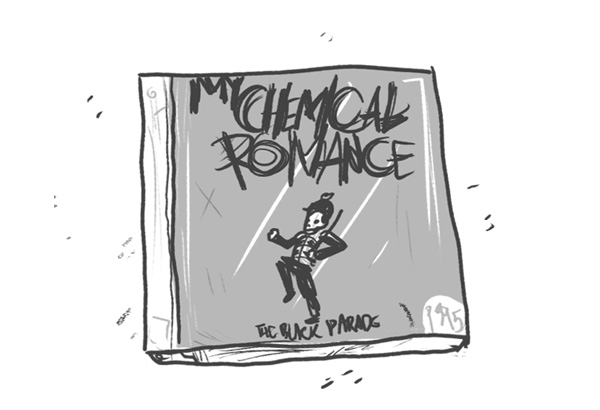
My Chemical Romance’s “The Black Parade”
By Mariah Reodica of Ourselves the Elves
The day My Chemical Romance broke up, I locked myself up in my room and listened to their entire discography straight for the first time in years. To my surprise, I still knew the lines by heart. After all, how could I forget the band that made me buy an electric guitar, and crank up the volume on a cheap amp so that I could be in a band?
“The Black Parade” is My Chemical Romance’s grandest statement, where Gerard Way takes on the heady role of a cancer patient learning to accept his death, backed up by eardrum-ripping distortion, swelling orchestras, and pure unadulterated adrenaline and heart. Each song is different musically, proving My Chemical Romance’s versatility, from sad ballads (Cancer, Disenchanted) to anthems for outcasts (Welcome to the Black Parade, Famous Last Words), with strange circus rock curveballs like Mama along the way. The narrative was episodic unlike more linear rock operas like “The Wall” by Pink Floyd, because it was about more than just one life. It was about the many lives that one person can live. The album may be as morbid as it gets, but by reveling in death, it becomes a glorious celebration of life and rock and roll, and the light at the end of the tunnel.
However, I understand why many people didn’t get that. When I was 14, My Chemical Romance weren’t cool because they polarized people by taking things to the extremes without compromising. If they wanted to tell a story, they gave us vampires, cancer patients, cemeteries, and a faux-weeping Liza Minnelli. The theatrics might have turned some people off, but I liked how the rich imagery and narratives in their songs were ripe for dissecting during recess. I gravitated towards other My Chemical Romance fans in my school to share interviews, drawings, and magazine clippings organized meticulously in clear books. We became an unstoppable gang of misfits backed up by having a band to believe in even if we were judged for our idiosyncrasies or differences. When we were teenagers venturing into the great unknown of adolescence, My Chemical Romance comforted and reassured us that being cool, accepted, or normal wasn’t the point, nor theirs, because we had bigger things in mind. It may not seem as big as questions about life and death, but if you’re 14 and you’re told that everything will be all right in the end from your first favorite band, it means a damn lot.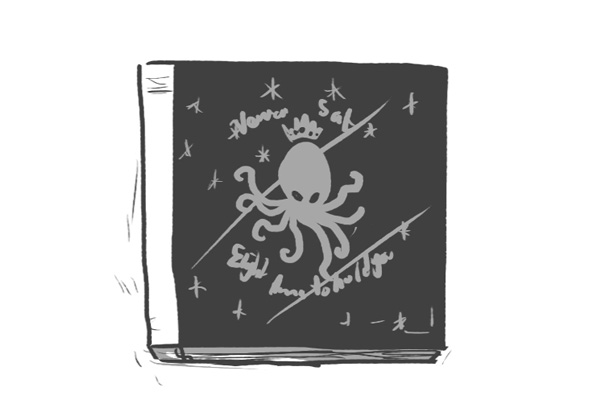
Veruca Salt’s“Eight Arms To Hold You”
By BP Valenzuela, singer-songwriter
When I was 12, I got my first iPod — a cute green fourth-generation Nano. Prior to that I had a regular Discman and lugged around a huge sleeve book of CDs. It was so unnervingly convenient, and when I went traveling to the US, I had to finally let go of my laggy, skipping Discman in favor of the weird, small and magic little thing. I got to sync one album on it — 1997’s “Eight Arms To Hold You” by Veruca Salt, and it was on repeat as we drove across California and flew to the East Coast. The songs on it are what I would try on various prospective first electric guitars (I’d been saving for one to get). They were anthems of girl power (Volcano Girls), regular teenager things (The Morning Sad, With David Bowie), rebellion (Don’t Make Me Prove It) wrapped into a noisy little package of distortion and girls playing solos while whispering floating harmonies, and the two chummy frontwomen (Louise Post and Nina Gordon) were my best friends, too. It’s such an honest, catchy, hook-driven and riotous album, and the only album I could listen to from end to end five times straight.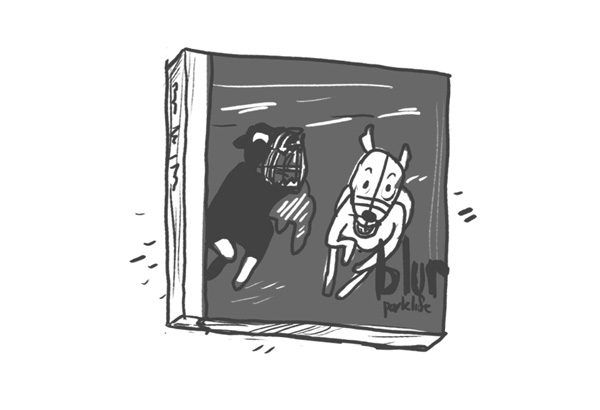
Blur’s “Parklife”
By Jason Caballa of Pedicab
I acquired a CD of Blur’s third album “Parklife” as a college freshman, about a year after it was released and catchy singles like Girls and Boys and the title track had debuted on MTV. I’d amassed quite a sizable CD collection at that point, but just one day after I bought the CD, I was rushed to the hospital for abdominal pains. Turned out I had hepatitis, and I had to be confined at home for three weeks. I listened to “Parklife” every day in my isolation and fell in love with it, committing to memory every word that Damon Albarn sang and every note that Graham Coxon played. Of course the better-known songs like End of a Century and To The End are timeless, but the whole record is essential listening, a grand musical statement, and to this day, still my favorite British LP ever made.??????????
The Smashing Pumpkins’ “Mellon Collie and the Infinite Sadness”
By Owel Alvero of Ang Bandang Shirley
The first CD I ever bought was The Smashing Pumpkins’ “Mellon Collie and the Infinite Sadness.” Hearing Bullet with Butterfly Wings for the first time on MTV, I thought it was the heaviest thing ever (ha-ha) and I when I bought “MCIS” I expected the music to open a gateway to hell. Instead I got mellotrons. Drum machines. The vocal stylings of James Iha and D’arcy Wretzky on a bunch of weirdo ballads. There were the expected face-melters too, but they were side by side with Corgan’s attempts at synth-pop. It was a staggering idea at the time: these sounds could coexist on one release.
“MCIS” was a strange creature. It was too ambitious, a concept album about night/day/space travel(?) composed by a glam rock x power pop afflicted grunge era survivor written with all the eloquence of a precocious 13-year-old. If it flopped, it would have been an incredible failure, a case study on Billy Corgan’s delusions of grandeur. But it killed, crossing over to pop radio. Shakedown 1979, everybody.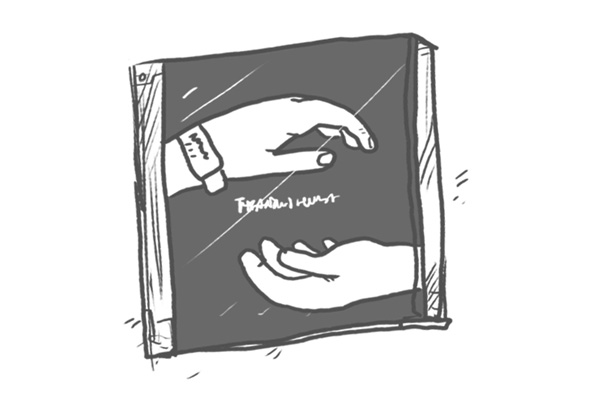
The Antlers’ “Hospice”
By Ellie Centeno, former 88.3 DJ and
music curator
A great number of albums attempt to tell a story, and The Antlers’ 2009 effort, “Hospice,” is no exception to that. These storytelling albums, however, are rarely ever able to reach the level of poignancy and honesty needed to capture the feelings of love and loss in their rawest forms in the way that “Hospice” managed to. From start to finish, “Hospice” reads like a novel flawlessly accompanied by Peter Silberman’s haunting and almost pained falsetto and a cathartic mix of musical atmospheres that sounds both foreign and familiar to the willing ear. This aural masterpiece of an album follows the story of a hospice worker who falls in love with a terminally ill patient with bone cancer, knowing full well the consequences of the circumstances they’ve found themselves in. The cancer is said to be a metaphor for the kind of love that’s abusive and controlling, to the point that it’s self-destructive. I couldn’t stop crying when I listened to “Hospice” in its entirety for the first time; I’d never encountered anything like this — something so fervently pure that it was as beautiful as it was heartbreaking, especially having found it at a time when I had just lost a part of myself and didn’t know how to deal with it. “Hospice” is the kind of album you can’t experience fragmented — it is far too complex for that. Every song is to be marveled at but as a whole, “Hospice” is a musical pièce de résistance that is so brilliantly executed that it can move even the most unemotional person to tears. P.S.: I still ugly-cry over it now.















